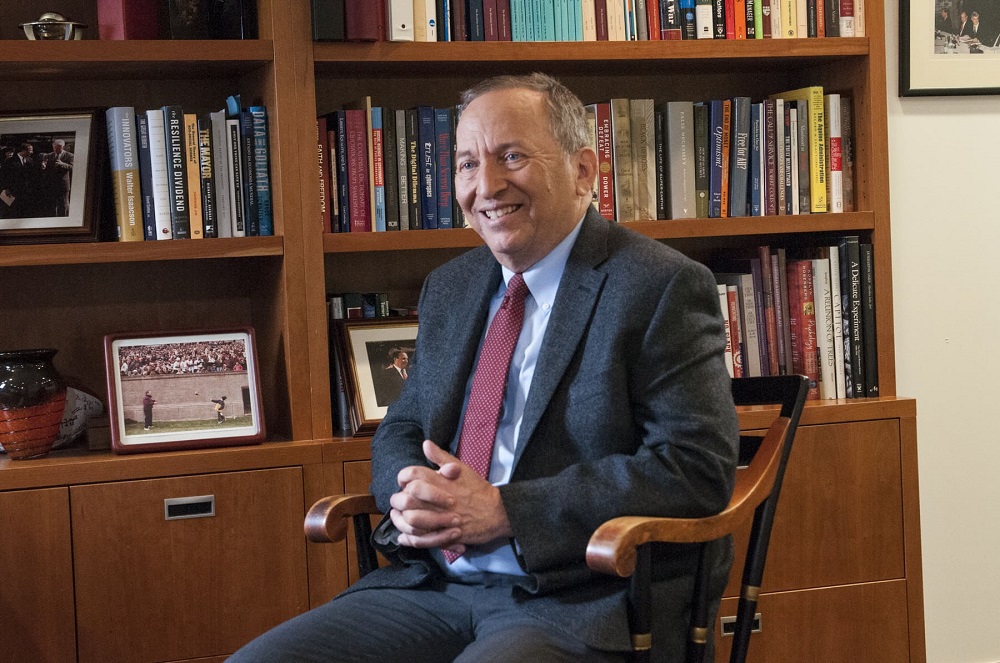FED and BoE are too woke?
Not for the first time, central bankers in advanced countries such as the US and UK have been accused of being too woke.

Former US Treasury Secretary Larry Summers who said that the cost of this ‘wokeness’ could be much higher inflation and significant financial market disruption.
The accuser, again, is former US Treasury Secretary Larry Summers who said that the cost of this ‘wokeness’ could be much higher inflation and significant financial market disruption. Mr. Steve Barrow, Head of Standard Bank G10 Strategy has some sympathy for Mr. Larry Summers’ views.
Gone are the days of the uber hawkish central banker; the likes of Paul Volker who led the Fed for eight years in the early/mid 1980s, or Karl Otto-Pohl who was president of the German Bundesbank through the whole of the 1980s. But so too, it seems, are the days of sky-high inflation that forced these central bankers to slam on the monetary brakes. However, with inflation making a comeback there are question marks over whether the likes of the Fed or ECB could ever go back to the sort of draconian monetary tightening that rid the US of high inflation in the late 1970s and 80s and in Germany in the early 1990s after the fall of the Berlin wall. In other words, have central banks gone too soft?
Larry Summers certainly seems to think so and thinks he knows the reason: wokeness. He’s right to point out that central banks these days talk a lot more about issues such as equality or the environment than many of their erstwhile colleagues from decades past. The key issue is whether this distracts them from their primary purpose, which is to control inflation.
If we take the Fed, for instance, this is a possibility. Last year’s monetary policy strategy change saw the Fed alter its full employment aim to one that encompassed what it called ‘inclusivity’ as well. In short, the Fed had found in the past that even though it had succeeded in getting the unemployment rate down to what it thought (incorrectly) were full employment levels, there were still significant parts of the potential labour force that could not seem to get the jobs they wanted. Issues of race, for one, were seen as a factor leading to this inequality. So, the Fed adjusted its mandate to seek to allow employment to go well beyond full employment levels in the hope that the needs of this disadvantaged group could be met. That’s a noble goal; the issue is whether it risks running the economy too hot and so creating excessive inflation into the bargain.
"Summers seems to think so but he also argues that the Bank of England is at even greater risk of presiding over excessive inflation - and the Bank does not even have a similar goal when it comes to employment; it’s mandate focuses on inflation only. Now undoubtedly, Bank of England members’ talk far more these days on the subjects of equality and climate change than their predecessors and perhaps just as much as the Fed", Mr. Steve Barrow said.
However, the key for us is that the BoE has not mandated itself to try to fix inequality (in the labour market) as the Fed has done. Hence, Mr. Steve Barrow doesn’t agree with Summers’ view that the BoE is at risk of creating a bigger inflation mistake than the Fed. He thinks that the BoE has already given a hint of this as members, led by Governor Bailey, have argued that the bank could even lift rates before it has finished buying gilts; the Fed seems to have categorically ruled out such a possibility.
In the end, Mr. Steve Barrow can’t be sure that the BoE will do it, although he thinks it will, but the point remains that if one of these banks runs a risk of going soft on inflation it is more likely to be the Fed than the BoE. “If we look at the Reserve Bank of New Zealand, we see a central bank that has been pressed into taking equality issues into account much more. It now has a dual mandate that takes into account employment, rather than just inflation. But unlike the Fed, which seems to be a year or more away from its opening rate hike, the RBNZ has lifted rates already. Clearly this is not as conclusive verdict on the RBNZ’s anti-wokeness or the Fed’s excessive focus on issues such as equality but, right now we know who we’d rather trust to keep inflationary pressure down”, Mr. Steve Barrow said.








